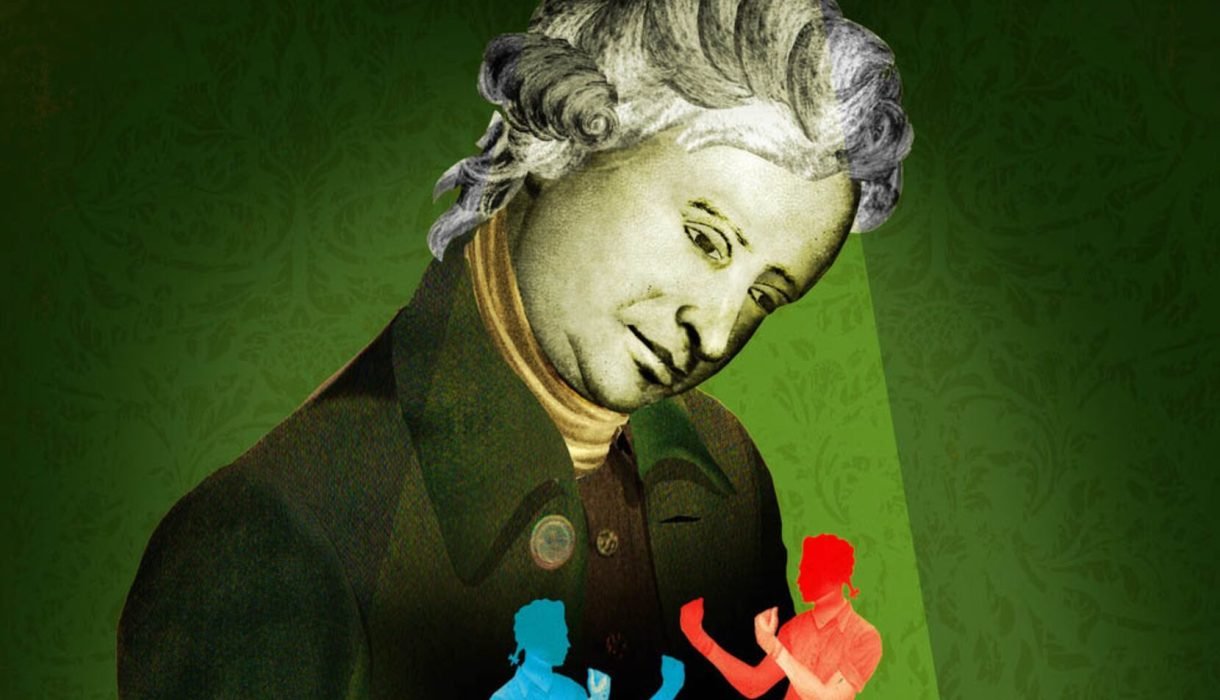
The Cost of Complacency: Democracy and Individual Responsibility
Posted in :
The Cost of Complacency: Democracy & Responsibility
This blog post explores the critical role of individual responsibility in preserving democratic ideals. It discusses the state of democracy in the U.S., the complacency of citizens, and the tangible impact of democratic values on everyday life.
In our rapidly changing world, it’s easy to take our freedoms for granted. I remember a time when I could freely voice my opinions without fear of repercussions. However, the recent political climate has made me reflect deeply on the state of democracy. Are we becoming too comfortable with our rights? What happens when we stop challenging the status quo?
Understanding Democracy: What Does It Mean Today?
Defining Democracy in Contemporary Society
Democracy is often viewed as a complex and abstract concept. Yet, at its core, it embodies the idea of governance by the people. In contemporary society, democracy means more than just the act of voting. It encompasses the active participation of citizens in political processes and decision-making. It’s about ensuring that every voice matters.
In a democratic society, citizens have the right to express their opinions, advocate for change, and hold their leaders accountable. This engagement is crucial. Without it, democracy risks becoming a mere facade. The question arises: how can individuals ensure their voices are heard? The answer lies in civic engagement and participation.
A Historical Perspective on American Democratic Values
The United States has a rich history of democratic values. From the founding fathers to the civil rights movement, these values have evolved. They reflect the struggles and triumphs of those who fought for equality and justice. American democracy is built on principles like freedom, equality, and the rule of law.
However, it’s essential to recognize that these values are not static. They require constant nurturing and protection. For instance, the historical voter turnout rates reveal a troubling trend. Many citizens feel disillusioned or apathetic about participating in elections. This disengagement can threaten the very fabric of democracy.
- 64% of Americans believe democracy is under threat.
- Voter turnout rates have fluctuated significantly over the years.
The Importance of Rule of Law and Independent Judiciary
The rule of law is a cornerstone of democracy. It ensures that laws apply equally to all individuals, regardless of their status. An independent judiciary is vital in upholding this principle. It acts as a check on power, ensuring that no one is above the law.
In contrast, authoritarian regimes often lack these safeguards. Citizens in such societies may fear speaking out or supporting their chosen candidates. This fear stifles democracy and leads to corruption. In a democratic society, however, individuals can express their opinions without fear of retribution. This freedom fosters a stable economy and a thriving civil society.
The Role of Civil Liberties in a Functioning Democracy
Civil liberties are fundamental to a functioning democracy. They protect individual rights and freedoms, allowing citizens to express themselves freely. Without these liberties, democracy becomes a hollow concept. It’s essential for citizens to understand their rights and actively defend them.
Moreover, the preservation of democracy is not solely the responsibility of elected officials. As the quote states,
“The most important office in this democracy is the citizen.”
This emphasizes the need for individuals to take initiative. They must stand against injustice and advocate for democratic values.
Contrasting American Democracy with Other Nations
When comparing American democracy to other nations, stark differences emerge. In many countries, citizens face significant risks for opposing the government. In contrast, Americans enjoy the freedom to protest, vote, and express dissent. This freedom is a privilege that should not be taken for granted.
However, complacency can be dangerous. Many citizens, especially those who identify as progressive, may feel secure in their rights. Yet, they must remain vigilant. The fight for democracy requires ongoing effort. It’s not enough to support democratic values when it’s convenient. True commitment means standing firm, even when faced with challenges.
Democracy is a living, breathing entity. It requires active participation and constant vigilance. As citizens, individuals must engage with their communities, advocate for their rights, and hold their leaders accountable. The future of democracy depends on their willingness to act.
The Dangers of Complacency: When Comfort Breeds Inaction
Complacency can be a silent killer of progress. It creeps in when people feel comfortable. They think, “Why rock the boat?” This mindset can lead to serious consequences. History is filled with examples where complacency has led to oppression. When individuals and societies become too comfortable, they often ignore injustices. This can create a breeding ground for tyranny.
Historical Examples of Complacency Leading to Oppression
History teaches us valuable lessons. One glaring example is the rise of authoritarian regimes. In the early 20th century, many citizens in Germany were complacent. They believed that their democratic institutions were strong enough to withstand any threat. However, as the Nazi party gained power, many chose to look the other way. They thought, “It won’t affect me.” This complacency allowed oppression to flourish.
Another example is the civil rights movement in the United States. For decades, many white citizens were comfortable with the status quo. They ignored the systemic racism that oppressed African Americans. It wasn’t until brave individuals began to speak out that change started to happen. The complacency of the majority allowed injustices to persist.
The Role of Social Movements in Challenging the Status Quo
Social movements play a crucial role in challenging complacency. They awaken the public to injustices that many prefer to ignore. For instance, the Black Lives Matter movement has brought attention to police brutality and systemic racism. It has encouraged people to engage in uncomfortable conversations about race and justice.
These movements remind us that silence is complicity. When people stand up and demand change, they challenge the status quo. They force society to confront uncomfortable truths. As one speaker noted, “We got pretty comfortable and complacent.” This statement highlights the need for individuals to remain vigilant and active in their communities.
The Consequences of Ignoring Injustices
Ignoring injustices can have dire consequences. When citizens remain silent, they allow oppression to thrive. This can lead to a breakdown of democratic values. A recent survey revealed that 45% of people feel political engagement comes with personal risk. This fear can deter individuals from speaking out. However, it is essential to recognize that inaction can be just as dangerous.
Complacency can lead to societal decay. When people stop caring about their rights and the rights of others, they risk losing those freedoms altogether. History shows that when complacency reigns, oppression often follows. It is vital for citizens to become active, informed participants in democracy.
Speaking Out Even When It’s Uncomfortable
Speaking out against injustice is not easy. It often requires individuals to step out of their comfort zones. Many people fear backlash or social ostracism. However, the importance of civic engagement cannot be overstated. It is the responsibility of citizens to uphold democratic values. They must actively oppose wrongdoing.
Institutions, too, have a role to play. Law firms, universities, and corporations must prioritize principles over profit. They should be willing to sacrifice for their core values. This commitment is essential, especially when faced with challenges to their integrity or freedom.
In the aftermath of events like the killing of George Floyd, many organizations pledged support for social justice. Yet, as time passed, some of this support faded. This superficial commitment to social justice highlights the dangers of complacency. When the initial outrage subsides, many retreat to their comfort zones. They forget the importance of sustained action.
In conclusion, complacency is a dangerous mindset. It can lead to oppression and societal decay. Historical examples remind us of the importance of vigilance. Social movements challenge the status quo and encourage active participation. Ignoring injustices can have severe consequences. It is crucial for individuals to speak out, even when it’s uncomfortable. Only then can they help preserve the democratic values that define their society.
Governance and Individual Responsibility: Are We All Accountable?
In today’s world, the health of democracy is not just a matter for politicians or institutions. It is a shared responsibility. Each individual plays a crucial role in shaping the democratic landscape. The choices made by one person can ripple through society, impacting the broader democratic health. This raises an important question: how aware are we of our individual responsibilities?
The Impact of Individual Choices on Broader Democratic Health
Every choice made by a citizen contributes to the overall state of democracy. When individuals engage in civic activities—like voting, attending town hall meetings, or advocating for social justice—they strengthen democratic values. Conversely, apathy can lead to a decline in democratic health. It’s like a garden; if you neglect it, weeds will take over.
- Voting is not just a right; it’s a responsibility.
- Engaging in discussions about policies can influence others.
- Supporting local initiatives fosters community involvement.
When people choose to act, they contribute to a culture of accountability. This culture is essential for a thriving democracy. It encourages others to follow suit, creating a chain reaction of positive engagement.
Facing the Moral Dilemma: Personal Sacrifice Versus Convenience
However, the path to active citizenship is often fraught with dilemmas. Individuals frequently face the choice between personal convenience and the greater good. For instance, standing up against injustice may require time, effort, or even financial sacrifice. This leads to a critical question: are we willing to fight for it?
Many people find it easier to remain silent or indifferent. They may think, “What difference can I make?” But history shows that significant change often starts with a single voice. Consider the civil rights movement. It was fueled by individuals who chose to sacrifice their comfort for the sake of justice. Their courage inspired others to join the cause.
The Essential Role of Courage in Defending Democratic Ideals
Courage is a vital ingredient in the recipe for democracy. It empowers individuals to stand up against wrongdoing. Without courage, democratic ideals can easily be undermined. When people witness injustice, they must ask themselves: will I speak out, or will I remain silent?
Organizations and institutions also bear a significant responsibility in this context. They must uphold values, even when it’s inconvenient. For example, law firms and universities should prioritize principles over profit. This means being willing to sacrifice certain luxuries or projects to maintain integrity. It’s a tough choice, but one that is necessary for the greater good.
Moreover, the recent surge in support for social justice movements has highlighted a troubling trend. Many individuals and organizations initially rallied behind causes but later retreated when the spotlight faded. This superficial commitment raises questions about the depth of their dedication. Are they truly invested in these ideals, or are they merely responding to social pressure?
Empowerment Through Engagement and Accountability
Empowerment comes from engagement. When individuals take responsibility for their actions, they contribute to a more just society. This accountability is not just personal; it extends to organizations as well. Institutions must be held accountable for their actions and decisions. They should be encouraged to support their core values, even when it’s challenging.
In conclusion, the health of democracy relies on the collective actions of individuals and organizations. Each person must recognize their role in this system. They should strive to make choices that reflect their values, even when faced with difficult decisions. The call to action is clear: we must be willing to fight for our democratic ideals. Only then can we ensure a future where justice, equality, and freedom thrive. The question remains: are we ready to take that step?
TL;DR: Democracy requires active participation and commitment from citizens; complacency poses a threat to our freedoms and values. We must be willing to fight for justice and uphold democratic ideals, even when it is inconvenient or uncomfortable.
ValuesInSociety, ImpactOfInaction, FreedomOfSpeech, SocialJustice, DemocraticIdeals, Democracy, RuleOfLaw, Complacency, IndividualResponsibility, CitizenEngagement
#RuleOfLaw, #ValuesInSociety, #CitizenEngagement, #ImpactOfInaction, #SocialJustice, #FreedomOfSpeech, #DemocraticIdeals, #Complacency, #IndividualResponsibility, #Democracy,#democracy, #civicengagement, #individualresponsibility, #politicalcomplacency, #activism, #freedom, #ruleoflaw, #civilrights, #2024election, #americanvalues

